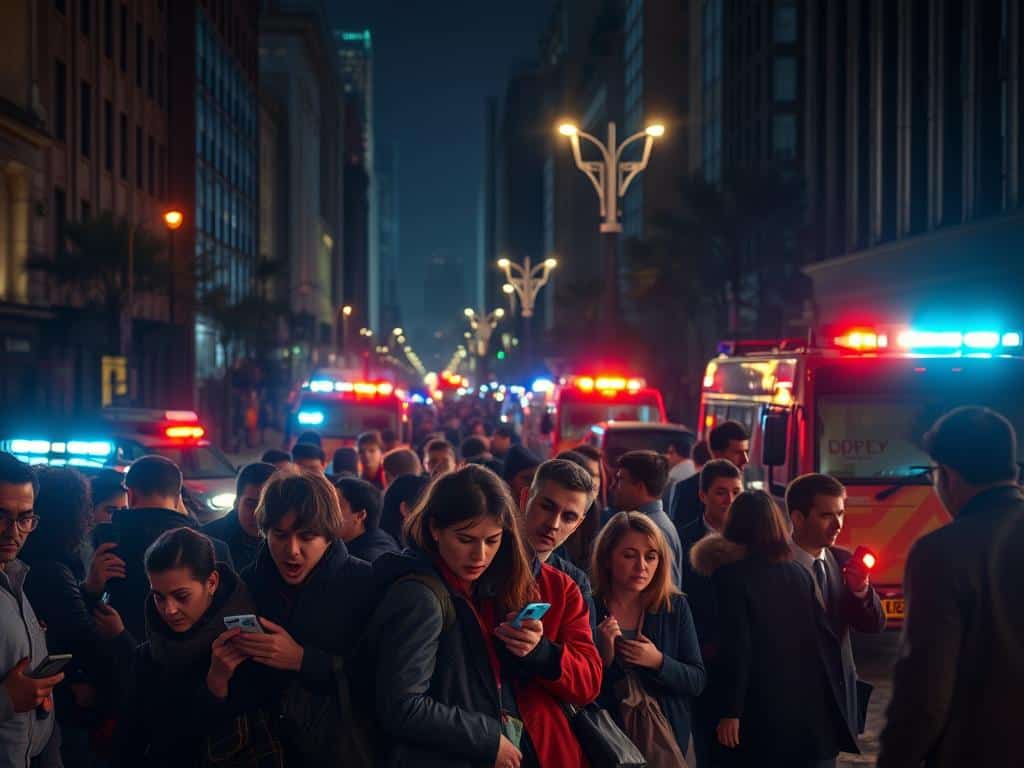Preparing for a new trip always excites me. But I can’t ignore the worry about stepping into unknown places. I’ve heard many stories from friends about travel scams. They nearly spoiled their fun. Last summer, a friend in Barcelona was tricked by locals. They pretended to show her a hidden gem. This was just the start of many scams aimed at taking her money. Travel scams have jumped by up to 900% in the last 18 months. So, I’ve learnt that knowing about these scams is the best way to protect myself. I’ll share the most common scams and how to avoid them. This way, your travels can stay fun and safe.
Key Takeaways
- Stay informed about the most common travel scams.
- Be skeptical of too-good-to-be-true offers from strangers.
- Always verify the legitimacy of services like taxis and rental cars.
- Secure personal information when using public Wi-Fi networks.
- Trust your instincts; if something feels off, it probably is.
Understanding Common Travel Scams
Knowing about common travel scams makes my trips better. Scammers aim at tourists who don’t know the area well. I’ll look into taxi overcharges, fake document sites, and the dangers of unsecure Wi-Fi.
Taxi Overcharge
Taxi overcharging is common in places full of tourists. Travelers often pay more because of hidden costs or dishonest drivers. It’s important to know the usual taxi fares beforehand and choose reliable taxi companies.
Fake Travel Document Websites
The internet has lots of fake document sites that trick travelers. These scams can cause big money loss and travel issues. Always check if a travel document site is real before using it.
Unsecured Wi-Fi Networks
Unsecure Wi-Fi networks are risky for personal info. Public Wi-Fi without encryption lets hackers easily steal data. To stay safe, I should use a VPN or avoid using personal accounts on these networks.
Recognizing and Avoiding Travel Scams
Exploring new places, I’ve learned to spot scams which improves my trips. Being alert helps me dodge common tourist traps. Knowing what to look for saves time, money, and stress from fake emergency calls, shut attractions, and car rental tricks.
Emergency Calls
When abroad, staying wary of emergency call scams is crucial. Scammers often trick tourists with fake crises. I recall a scam where someone pretended to be a cop in urgent need of money. Having real contact numbers helps me avoid these scams.
‘Closed’ Tourist Attractions
Some tricks include signs falsely saying attractions are closed to push tourists elsewhere. I check reviews and websites to get the real scoop. This keeps me from being misled into pricier, less satisfying places.
Car Rental Scams
Avoiding car rental scams is key to happy travels. I book only with trusted companies and carefully read agreements. Watch out for hidden fees or pressure to buy extra insurance. Doing my homework keeps travel smooth and scam-free.

Conclusion
Travel scams can really spoil the fun of exploring new places. They come in many forms, like charging too much for a taxi ride or selling fake travel papers. They change quickly, too, because of new technology. It’s very important for me to keep up and stay smart to avoid these tricks.
Being careful is the best way to steer clear of scams. Learning about them before I travel is super helpful. Once I’m on my trip, I always double-check everything. This could be making sure a service is real or going with my gut feeling in new places. This keeps my trip fun and safe from any scams.
In the end, knowing what to watch out for and questioning things helps me avoid scams. This makes my travel safer and more fun. Small steps I take to prepare can make sure my travel stories are about amazing places and cultures, not about scams.



